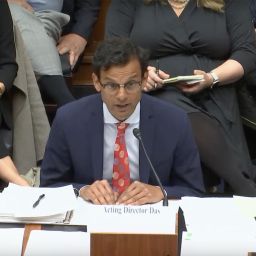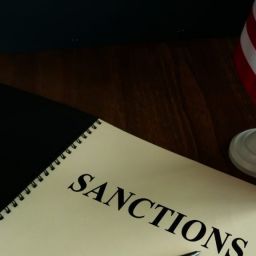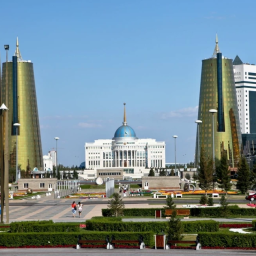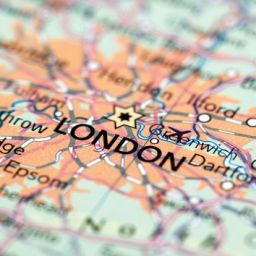From Russian money laundering to a fraud epidemic, economic crime costs the UK at least £290bn a year. The government must crack down on it
Russia’s full-scale invasion of Ukraine has finally forced the UK government to get serious about the country’s dirty money problem.
The welcome mat that successive UK governments put out in ‘Londongrad’ for Russian oligarchs and firms with close links to the Putin regime, now looks at best extraordinarily naïve and at worst wilfully negligent. This is especially true when you consider the strong warnings from bodies such as the Intelligence and Security Committee and defence experts.
The new Economic Crime Act – which was rushed through Parliament at break-neck speed in March, to make foreign ownership of property more transparent and make it easier for the UK to impose sanctions – was widely seen as a long overdue shutting of stable doors.

| Ilyas Ayub / Alamy Stock Photo
At the time, the government acknowledged that there was more work to do, and more gaps to be closed. So will the new Economic Crime Bill announced in the Queen’s speech fill those gaps? Will it finally solve the UK’s economic crime problem, whether it be dirty money laundered by kleptocrats and mafia organisations or the vast fraud epidemic?
Central to the new bill is reform to Companies House – a small part of the UK government machinery, whose failure to police companies set up in Britain has been at the heart of an endless stream of global and domestic economic crime scandals over the past decade.
According to analysis by Spotlight on Corruption, the UK government spends £852m a year fighting economic crime – the equivalent of just 0.042% of GDP. That’s despite economic crime costing the UK economy at least £290bn a year – equal to 14.5% of GDP.
From ‘bounce-back’ COVID loans fraud, set to cost the taxpayer up to £4.9bn, to the Russian laundromat that saw Russia’s security services and Putin’s family use UK companies to syphon billions out of Moscow, fraudsters and criminals exploit the lack of checks on who runs UK companies to launder money and evade detection. In 2020, the US’s financial intelligence unit, FINCEN, classified the UK as a ‘higher risk’ jurisdiction because of the number of UK-registered companies repeatedly cropping up in suspicious activity reports.
Reforming the agency, to allow it to check who is behind companies and correct inaccurate data, has been in the wings for more than four years. Earlier this year, openDemocracy reported on a litany of fake names used by fraudsters and pranksters, with apparently no attempt to stop them. In April, openDemocracy revealed that UK government officials have had their identities stolen by fraudsters to create bogus companies.
With that in mind, the real test of the legislation will be whether new powers allow for proactive prevention of economic crime (not just identifying it after it’s happened). That will necessitate robust and comprehensive screening to weed out dodgy companies.
It will also require sufficient resourcing for the agency to implement its new powers. The current price of £12 to set up a company in the UK is ludicrously low (in the US it costs the equivalent of £400 to do so and in Australia £200). There is widespread agreement across the private sector, civil society and Parliament that this should be significantly raised to help fund Companies House’s powers to police the register.
Other than this reform – which is probably the most important economic crime reform of the decade and is crucial to get right – the bill also covers new powers to police crypto-assets and allow banks to share intelligence about bad guys. Law enforcement will now be able to seize crypto-assets where they are linked to criminality.
Concerningly, however, the Queen’s speech also included a new Financial Services and Markets Bill, to cut “red tape in the financial sector to make the UK an even more attractive place to invest and do business, while making sure that high standards are maintained”.
Specifically, the bill envisages rolling out the “safe adoption” of cryptocurrencies in the UK and “resilient outsourcing to technology companies”. This, plus the Brexit Freedoms Bill also included in the speech, suggests that a major deregulatory drive is on the agenda.
This is probably the most important economic crime reform of the decade. Getting it right is crucial
Both a rapid adoption of crypto and deregulation carry massive dirty money risks. Last year saw cybercriminals laundering $8.6bn worth of crypto, a 30% rise on 2020 levels, and there have been reports that Russian oligarchs have been using crypto assets to evade sanctions. Proposals touted in The Daily Telegraph, for the UK to allow marketing of crypto assets and legal challenges to regulators, carry high risks. It is essential that the UK’s financial integrity is not sacrificed on the altar of financial innovation.
Meanwhile, major deregulation also carries significant dirty money threats. In its 2020 Russia Report, the Intelligence and Security Committee noted that “the promotion of a light and limited touch to regulation” was a major factor in attracting Putin-linked oligarchs to London. As Labour MP Margaret Hodge has argued, it is hard to see how deregulation and maintaining high standards can be reconciled.
To address these dangers, it is essential that new deregulatory measures face an economic crime impact assessment before being introduced. The government also needs to come forward with an ambitious new Economic Crime Plan – MPs in the banking all-party parliamentary group are tomorrow launching a manifesto of ideas on which it can draw.
Within this plan, the government must prioritise three key measures. Firstly, it must massively increase resourcing for law enforcement. Secondly, it must get a grip on the crazy panoply of money-laundering supervisors and the fact that legal and accountancy sectors largely self-regulate when it comes to dirty money. And finally, it must make it possible to prosecute large companies and banks for financial skulduggery, which, shockingly, is still not an option in 21st-century Britain.
Storm clouds are gathering over the economy and the government is resetting to attract voters. Now’s the time to make sure the rush to cash in on the much-vaunted Brexit dividend, through financial deregulation, does not throw open new doors to dirty money just as the old ones begin to close.
Original source of article: www.opendemocracy.net













